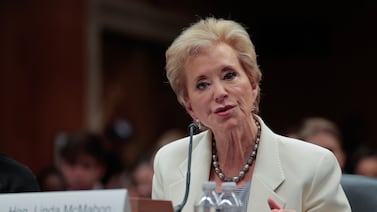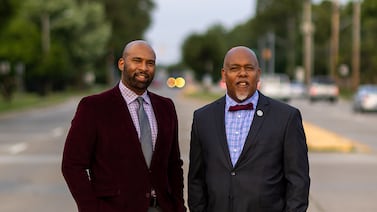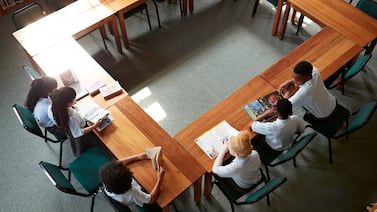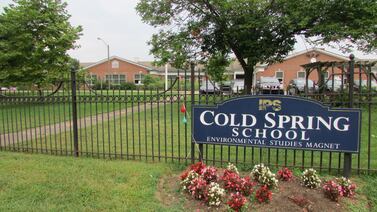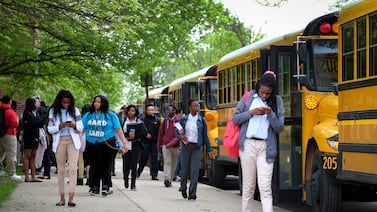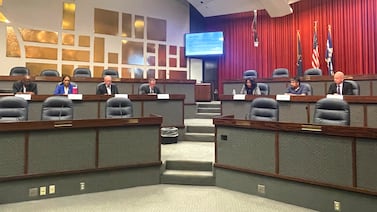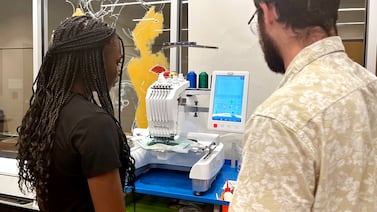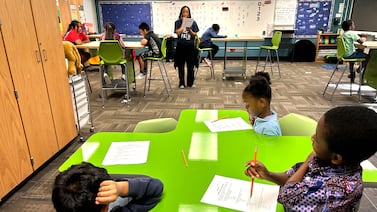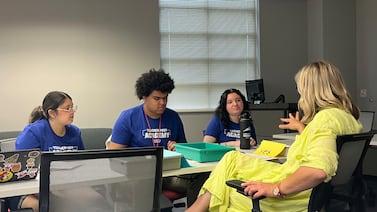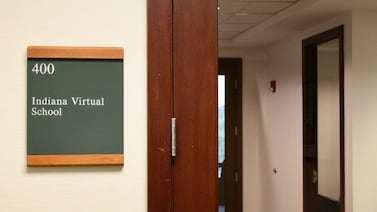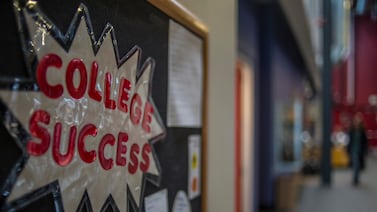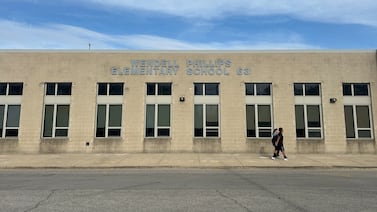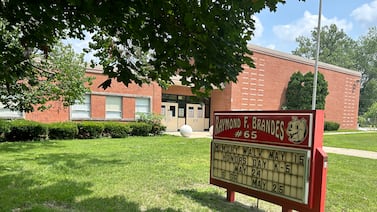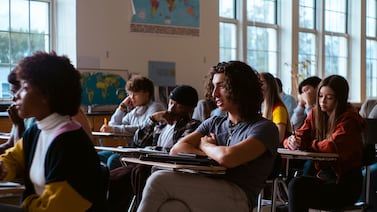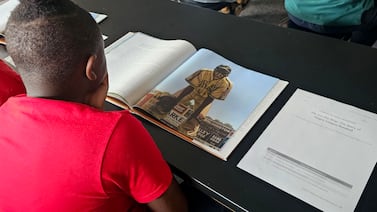It will be up to states to opt in to the new program, which could help fill the gap between rising private school tuition costs and vouchers that families receive.
The money would be available to more schools to use with fewer rules about where the money would go.
The Bush brothers graduated from Lawrence North High School and went on to pursue degrees in finance and business. But the school district from which they graduated ultimately inspired careers in education.
It will be up to states to opt in to the new program, which could help fill the gap between rising private school tuition costs and vouchers that families receive.
The money would be available to more schools to use with fewer rules about where the money would go.
The Bush brothers graduated from Lawrence North High School and went on to pursue degrees in finance and business. But the school district from which they graduated ultimately inspired careers in education.
Indiana is in the middle of a multi-year overhaul of reading instruction. State leaders want to see changes in math, too.
The district’s two STEM middle schools will launch a STEM Scholars program and create STEM Future Centers where students can go for academic support and hands-on opportunities.
The City-County Council is weighing a longer curfew after recent gun violence that left five teenagers dead. Eleven local superintendents said the proposal ‘is not about punishment — it’s about prevention.’
Amid state budget troubles, alternative schools lost more than $4 million in funding.
Preschools are increasing their rates as Indiana makes significant cuts to its On My Way PreK program.
The state feels another pinch from the administration’s crackdown on DEI initiatives.
Converting to a charter school would have provided the K-8 school an additional $400,000 per year, according to one official, that would have funded a new foreign language teacher and a school resource officer.
Indianapolis educators, parents, and students will share their stories of back-to-school at this story slam co-hosted by Chalkbeat Indiana on Aug. 21.
District sees an opportunity for educators to write quiz questions, develop schedules, and write newsletters more efficiently.
John Marshall school building has sat empty since its closure in 2018. But the east-side property may soon get a new life.
The state spent around $497 million on the Choice Scholarship program in 2024-25, an increase of just over $58 million from the previous year.
The new group, created by state lawmakers, will issue recommendations later this year on how charter schools and IPS can share transportation and facility resources.
Every year, more than 8,000 Hoosiers take part in TRIO programs that support students in their pursuit of higher education. Trump’s budget proposal aims to cut the programs completely.
Become a Chalkbeat sponsor
Find your next education job.
The addition of another charter school is the latest change in the city’s evolving educational landscape. It follows a legislative session that pitted traditional public schools against charter schools in a fight for funding.
Third graders who did not pass a state literacy exam are using summer school as one final chance to pass and proceed to fourth grade under a tougher grade retention law.
Indiana lawmakers did not pass legislation on mental health and school counselors this year. But schools are proceeding with the programs and looking for outside funding sources.
Schools received a modest increase in the state budget. But Marion County education leaders are still trying to figure out what sweeping changes to local property taxes will mean.
The district will launch a second phase of its pilot AI program this upcoming school year.
The group is tasked by state lawmakers with examining how Indianapolis Public Schools and charter schools could collaborate to meet transportation and facility needs.
Teacher Prep Academy prepares high schoolers to be teachers, but the program’s future is uncertain.
Percy Clark has agreed to pay a judgment of roughly $1.3 million in a federal case alleging that the schools falsely inflated enrollment numbers to obtain state money.
Indiana set a goal to have 60% of high school seniors complete the Free Application for Federal Student Aid or FAFSA by April 15 every year. This year, the state reached 55%.
A credit card assigned to the former charter school official accrued tens of thousands of dollars in travel, high-end dining, and alcohol purchases. The official was terminated earlier this year.
The four June meetings will focus on how the district should engage with the new Indianapolis Local Education Alliance
The Indianapolis Local Education Alliance includes former mayor Bart Peterson, City-County Councilor Maggie Lewis, and IPS teacher Tina Ahlgren.
The school serves as an alternative option for students who’ve experienced behavioral, academic, or other challenges at their previous high schools.
The ruling from the state court of appeals ends a lengthy lawsuit over the so-called $1 law.
Laws going into effect in July prohibit certain ideas about race and identity in schools. They also require schools to post sex ed material.
High school students might struggle with longer deadlines and larger assignments. Here’s how Jill Cali breaks it down for them.
Leaders hope the merger of Ace Prep and Circle City Prep will bring financial stability to a small school with a strong academic track record.
The program helps teachers educated outside the U.S. get certified in Indiana. It also aims to reduce underemployment among immigrants
A federal Teacher and School Leader grant was supposed to provide more than $5 million in bonuses over three years to Perry teachers until it was eliminated through Trump administration cuts targeting DEI.


